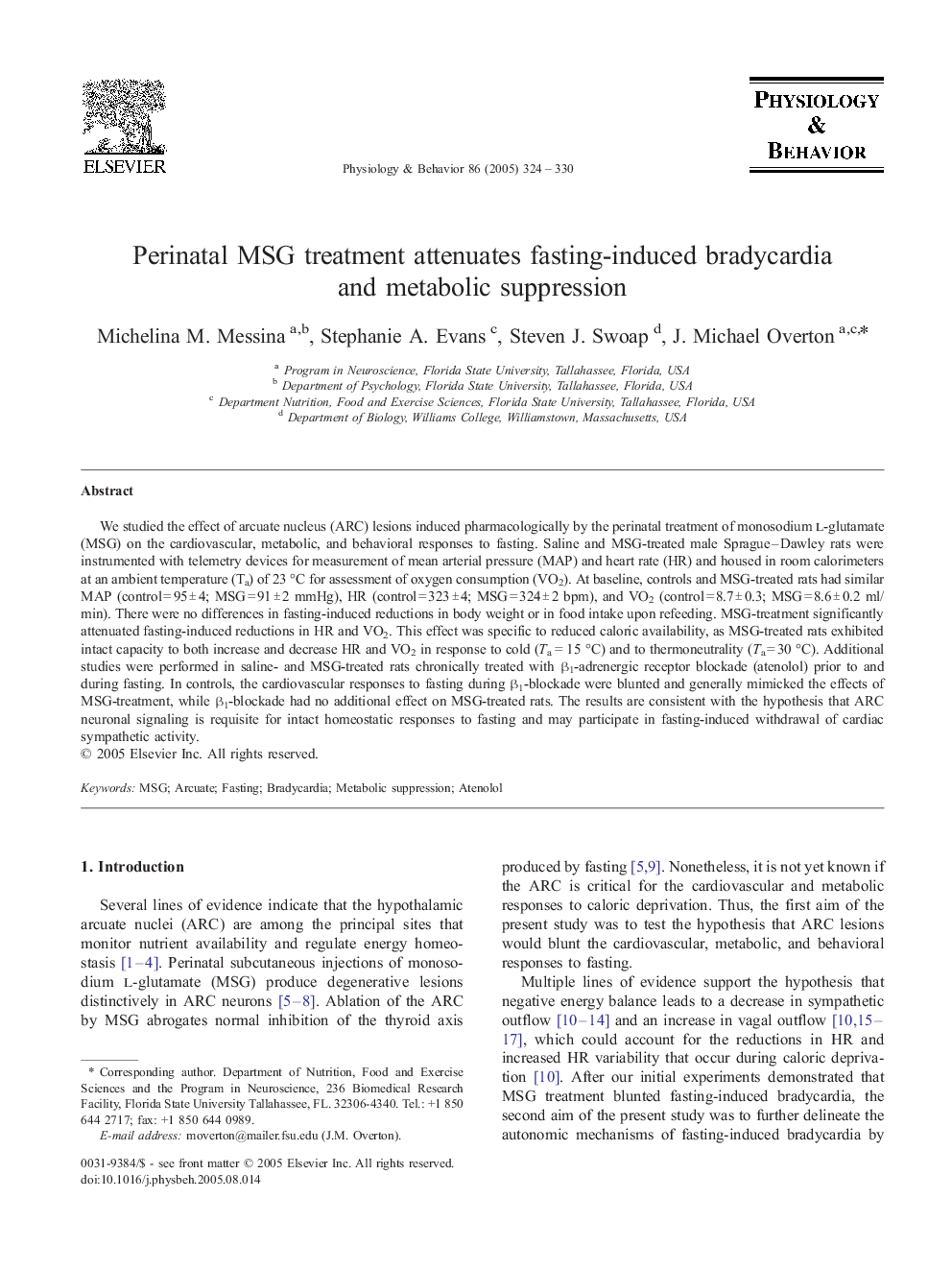| Article ID | Journal | Published Year | Pages | File Type |
|---|---|---|---|---|
| 9149585 | Physiology & Behavior | 2005 | 7 Pages |
Abstract
We studied the effect of arcuate nucleus (ARC) lesions induced pharmacologically by the perinatal treatment of monosodium l-glutamate (MSG) on the cardiovascular, metabolic, and behavioral responses to fasting. Saline and MSG-treated male Sprague-Dawley rats were instrumented with telemetry devices for measurement of mean arterial pressure (MAP) and heart rate (HR) and housed in room calorimeters at an ambient temperature (Ta) of 23 °C for assessment of oxygen consumption (VO2). At baseline, controls and MSG-treated rats had similar MAP (control = 95 ± 4; MSG = 91 ± 2 mmHg), HR (control = 323 ± 4; MSG = 324 ± 2 bpm), and VO2 (control = 8.7 ± 0.3; MSG = 8.6 ± 0.2 ml/min). There were no differences in fasting-induced reductions in body weight or in food intake upon refeeding. MSG-treatment significantly attenuated fasting-induced reductions in HR and VO2. This effect was specific to reduced caloric availability, as MSG-treated rats exhibited intact capacity to both increase and decrease HR and VO2 in response to cold (Ta  =  15 °C) and to thermoneutrality (Ta = 30 °C). Additional studies were performed in saline- and MSG-treated rats chronically treated with β1-adrenergic receptor blockade (atenolol) prior to and during fasting. In controls, the cardiovascular responses to fasting during β1-blockade were blunted and generally mimicked the effects of MSG-treatment, while β1-blockade had no additional effect on MSG-treated rats. The results are consistent with the hypothesis that ARC neuronal signaling is requisite for intact homeostatic responses to fasting and may participate in fasting-induced withdrawal of cardiac sympathetic activity.
Related Topics
Life Sciences
Biochemistry, Genetics and Molecular Biology
Physiology
Authors
Michelina M. Messina, Stephanie A. Evans, Steven J. Swoap, J. Michael Overton,
